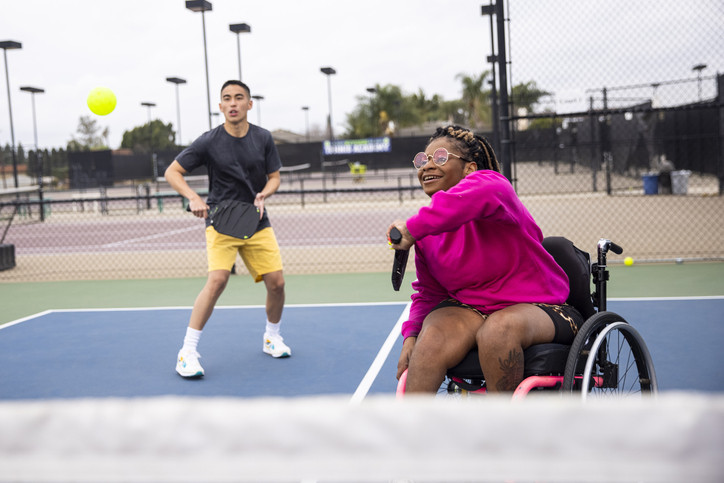
New thinking about plaque in arteries that feed the brain

Want to prevent shifting teeth? Maybe you need retainers

New evidence that polyphenol-rich foods help the heart

What you need to know about the new dietary guidelines

Food that’s healthier for people and planet can be cheaper, too

What are somatic workouts?

How to curb your stress eating

8 simple ways to reduce ultra-processed foods in your diet

How to spot Parkinson’s disease symptoms

Heart failure symptoms in women: How they’re different
Healthcare Disparities Archive
Articles
Ever read your medical record? Here's why you should
When you have a medical appointment, your health provider writes notes on the visit that are available to you. It's a good idea to read these — though you may be surprised or confused by some of the language — and to check in if you have questions or need to make important corrections.
How health care leaders can prioritize health equity for the LGBTQIA2+ community
Research shows that the LGBTQIA2+ community faces disproportionate adverse health conditions due to health inequities. It's important for those working in the health care industry to be aware of the challenges the LGBTQIA2+ community faces, to help make systemic changes and improve health outcomes.
How do trees and green spaces enhance our health?
Trees enhance our lives by releasing oxygen, reducing pollution, and preventing flooding. Beyond all of these benefits, there is growing evidence that just being around trees and green spaces improves mood and overall health.
What does a birth doula do?
In the US, more people seem to be seeking out the assistance of a doula when preparing to give birth. While such services may not be covered by insurance, a professional doula can provide emotional and physical support during pregnancy and throughout the birthing process.
Produce prescriptions may promote better heart health
The typical American diet isn't very healthy, and dietary shortfalls are more pronounced among people living in lower-income neighborhoods. A study analyzing data from produce prescription programs suggests that improving access to fresh vegetables and fruits may improve heart health.
Race, racism, and heart disease: Why awareness matters
In the United States, Black adults are more than twice as likely to die of cardiovascular disease than white adults. Discrimination and its downstream effects may underlie the survival gaps in cardiovascular disease between racial groups. Discrimination includes the daily hassles and indignities people experience in daily life and is reflected in a higher frequency of traumatic experiences. Unfair treatment can also affect employment opportunities, which limits opportunities to live in areas with access to heathy food, safe places to exercise, and good medical care.
Young men with prostate cancer: Socioeconomic factors affect lifespan
Prostate cancer is generally viewed as a disease of older men, yet about 10% of new diagnoses occur in men age 55 or younger. Biological differences partially explain the discrepancy, but socioeconomic factors also play an important role.
What happens when a drug goes viral?
| After celebrities touted its weight loss benefits, high demand put the diabetes medication Ozempic in short supply. Learn more about what this means for people with diabetes. |
Natural disasters strike everywhere: Ways to help protect your health
Increasingly, floods, fires, and extreme weather stemming from climate change are contributing to large-scale health and safety issues for people everywhere. There are steps you and your family can take to help protect your health.
Taking up adaptive sports
Our abilities may change during the course of a lifetime. Adaptive sports are competitive or recreational activities that are modified to support people living with disabilities or limitations.

New thinking about plaque in arteries that feed the brain

Want to prevent shifting teeth? Maybe you need retainers

New evidence that polyphenol-rich foods help the heart

What you need to know about the new dietary guidelines

Food that’s healthier for people and planet can be cheaper, too

What are somatic workouts?

How to curb your stress eating

8 simple ways to reduce ultra-processed foods in your diet

How to spot Parkinson’s disease symptoms

Heart failure symptoms in women: How they’re different
Free Healthbeat Signup
Get the latest in health news delivered to your inbox!
Sign Up











